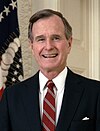
A felony is traditionally considered a crime of high seriousness, whereas a misdemeanor is regarded as less serious. The term "felony" originated from English common law to describe an offense that resulted in the confiscation of a convicted person's land and goods, to which additional punishments including capital punishment could be added; other crimes were called misdemeanors. Following conviction of a felony in a court of law, a person may be described as a felon or a convicted felon.

Theft is the act of taking another person's property or services without that person's permission or consent with the intent to deprive the rightful owner of it. The word theft is also used as a synonym or informal shorthand term for some crimes against property, such as larceny, robbery, embezzlement, extortion, blackmail, or receiving stolen property. In some jurisdictions, theft is considered to be synonymous with larceny, while in others, theft is defined more narrowly. A person who engages in theft is known as a thief.

Larceny is a crime involving the unlawful taking or theft of the personal property of another person or business. It was an offence under the common law of England and became an offence in jurisdictions which incorporated the common law of England into their own law, where in many cases it remains in force.
The following outline is provided as an overview of and topical guide to criminal justice:

Embezzlement is a term commonly used for a type of financial crime, usually involving theft of money from a business or employer. It often involves a trusted individual taking advantage of their position to steal funds or assets, most commonly over a period of time.

In criminal law, property is obtained by false pretenses when the acquisition results from the intentional misrepresentation of a past or existing fact.

The National Crime Information Center (NCIC) is the United States' central database for tracking crime-related information. The NCIC has been an information sharing tool since 1967. It is maintained by the Criminal Justice Information Services Division (CJIS) of the Federal Bureau of Investigation (FBI) and is interlinked with federal, tribal, state, and local agencies and offices.

The Firearm Owners' Protection Act (FOPA) of 1986 is a United States federal law that revised many provisions of the Gun Control Act of 1968.
The presidency of Ronald Reagan was marked by numerous scandals, resulting in the investigation, indictment or conviction of over 138 administration officials, the largest number for any president of the United States.
Title 18 of the United States Code is the main criminal code of the federal government of the United States. The Title deals with federal crimes and criminal procedure. In its coverage, Title 18 is similar to most U.S. state criminal codes, which typically are referred to by names such as Penal Code, Criminal Code, or Crimes Code. Typical of state criminal codes is the California Penal Code. Many U.S. state criminal codes, unlike the federal Title 18, are based on the Model Penal Code promulgated by the American Law Institute.
The Ozone Park Boys, also known as "Liberty Posse" and "The Young Guns", are a Gambino crime family Mafia crew based in Ozone Park, Queens. They are infamous for their massive number of crimes, including an illegal $30 million-a-year sports gambling enterprise.
Juan Enrique Segarra-Palmer is a Puerto Rican activist and one of the founders of the pro-independence group Los Macheteros.
The Texas Penal Code is the principal criminal code of the U.S. state of Texas. It was originally enacted in 1856 and underwent substantial revision in 1973, with the passage of the Revised Penal Code, in large part based on the American Law Institute's Model Penal Code.







